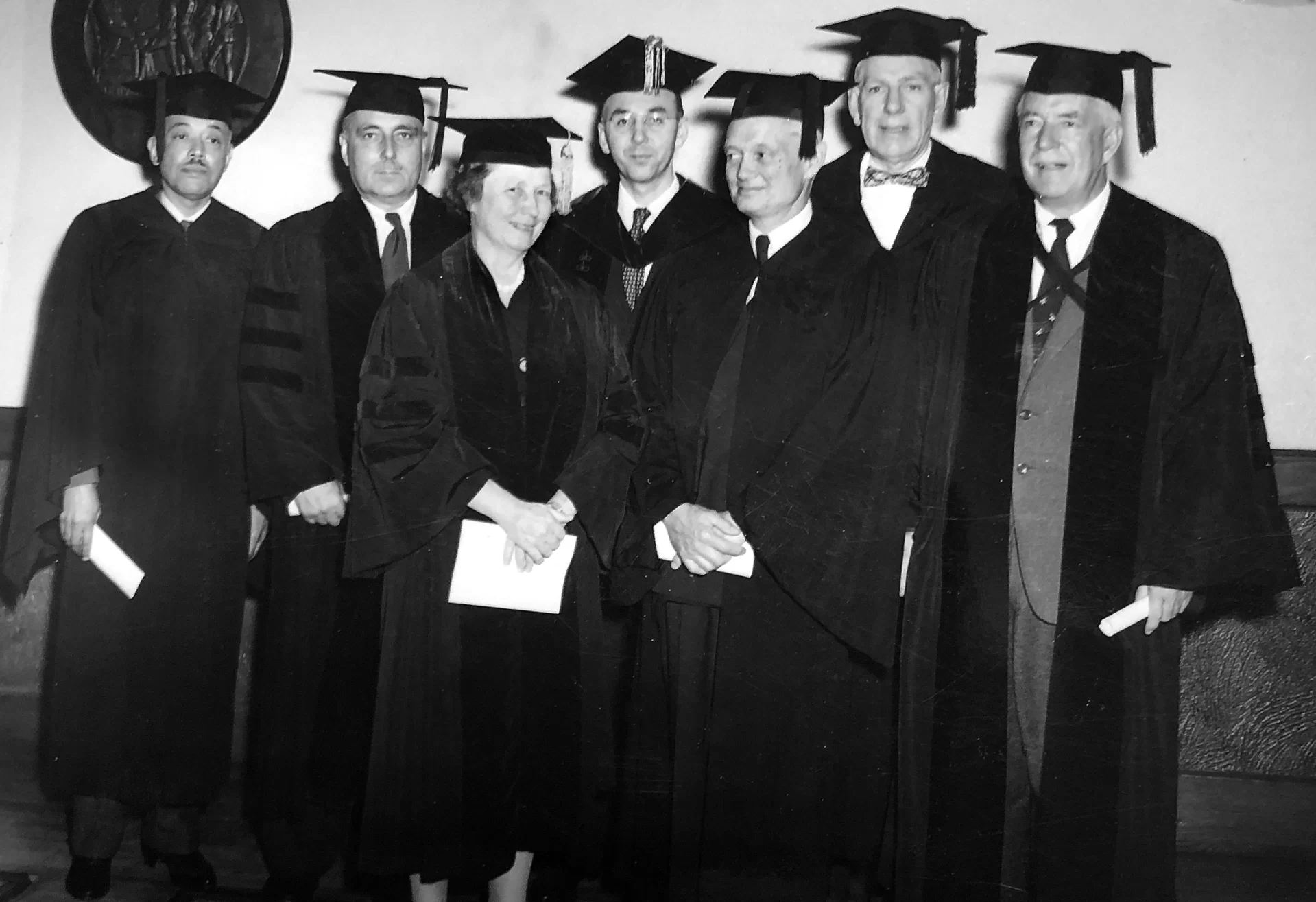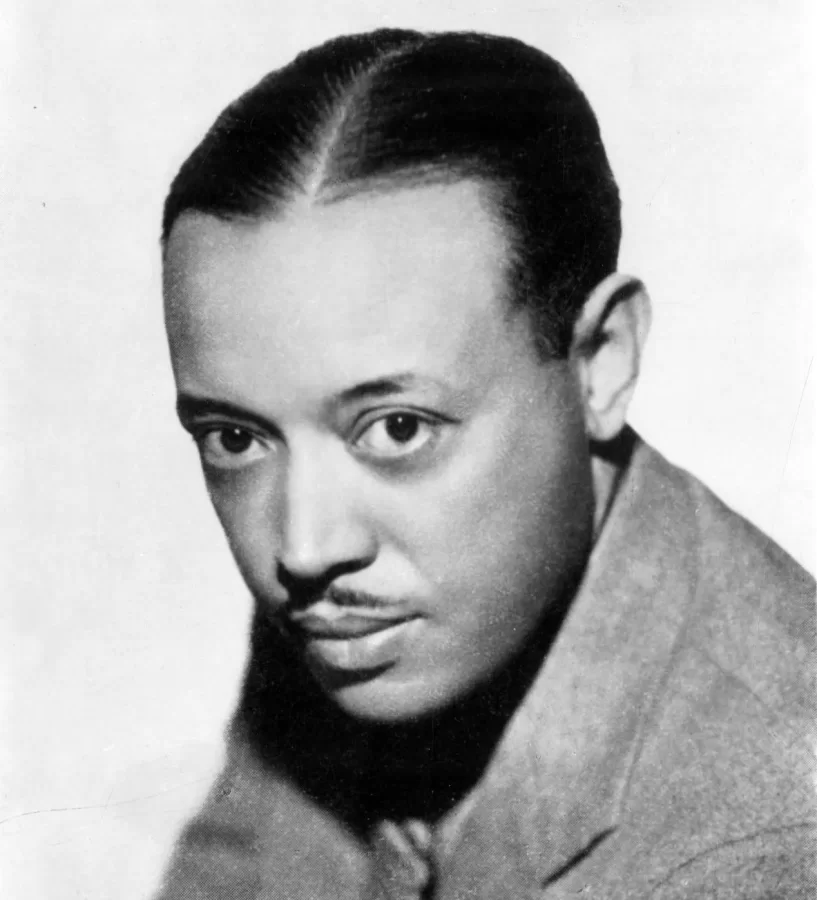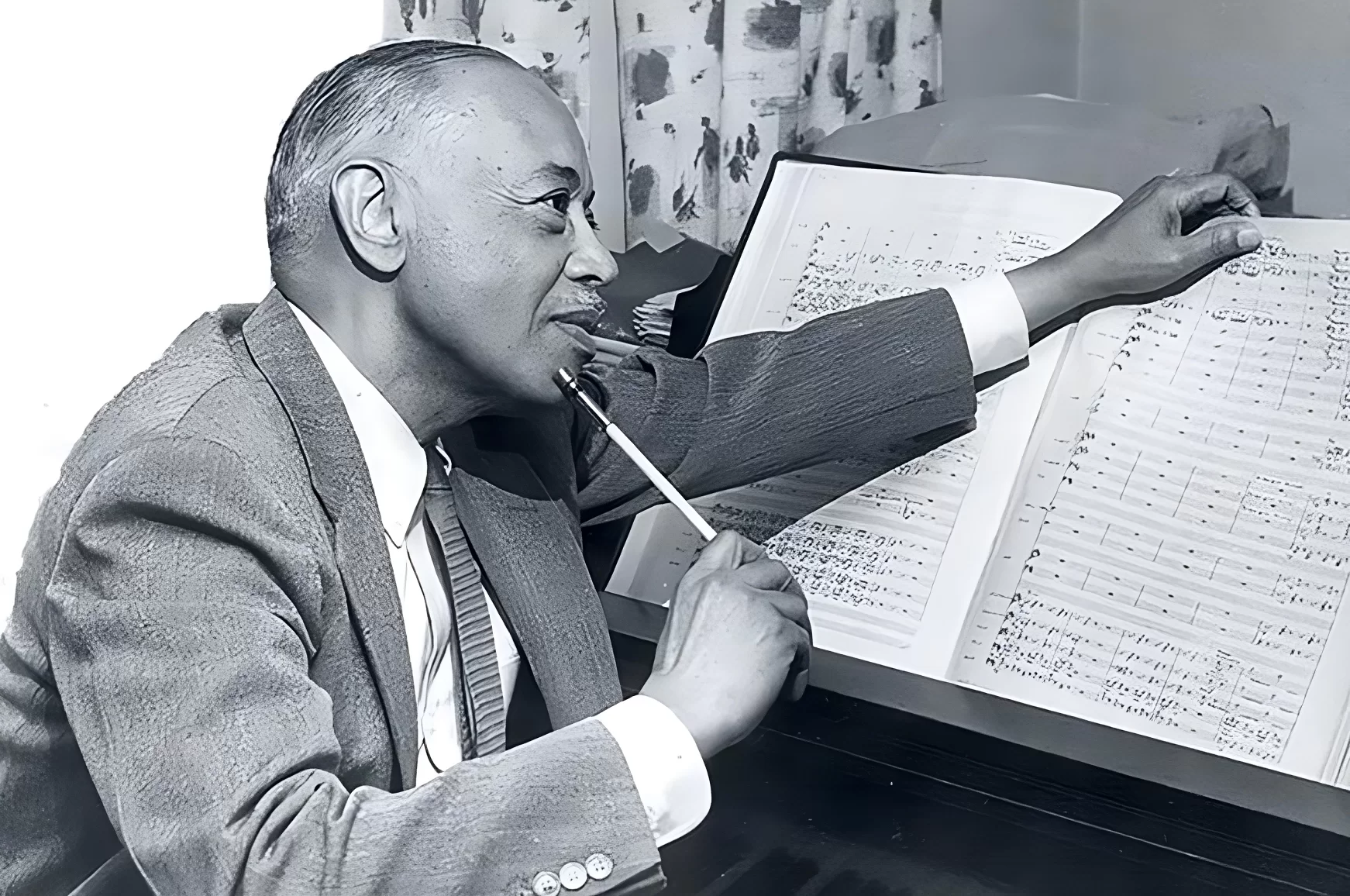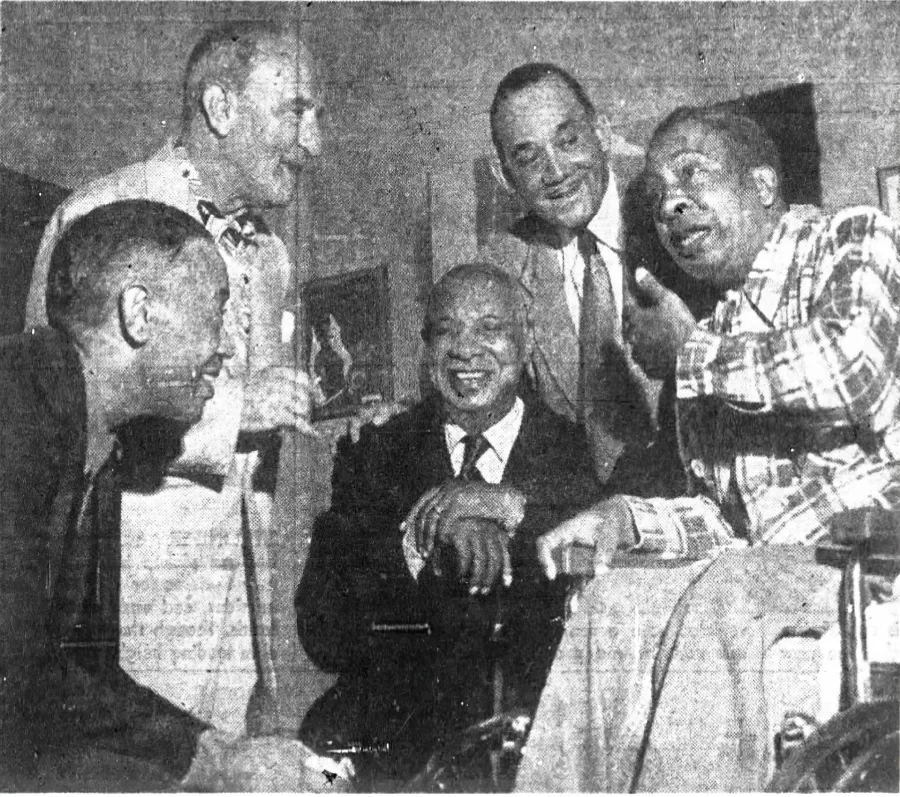
In 1954, American composer William Grant Still traveled to Bates to accept an honorary Doctor of Letters degree for creating music that placed him “among the leaders in interracial influence.”
Seventy years later, Still will return to Bates — through his music — when the Bates College Orchestra performs his Festive Overture at the inauguration of President Garry W. Jenkins on Saturday, May 4.
Watch Live
Featuring the music of William Grant Still, the installation ceremony for President Jenkins will be streamed live and be available for on-demand viewing afterward starting at 10:30 EDT. The ceremony can be viewed on the Bates website, Facebook, Instagram, LinkedIn, and YouTube.
By the mid-1900s, Still was known as the “dean of African American composers” for his prolific, pathbreaking career. Associate Professor of Music Hiroya Miura, the orchestra’s director and conductor, selected Festive Overture “knowing that this is the first Black president that Bates is inaugurating, and also that Still was the first Black American composer to have his music played by major American orchestras.”
A few of Still’s achievements:
- In 1930, his Symphony no. 1, Afro-American, was the first symphony composed by a Black American to be performed by a professional U.S. orchestra, the Rochester Philharmonic.
- In 1936, Still conducted the Los Angeles Philharmonic, becoming the first Black American to lead a major American symphony orchestra.
- In 1949, Still’s Troubled Island, a story about the Haitian revolutionary Jean-Jacques Dessalines, became the first opera composed by a Black American to be performed by a major American opera company, the New York City Opera.
Still wrote Festive Overture, the piece being performed at the Jenkins inauguration, in 1944 as the winning entry in a nationwide competition by the Cincinnati Symphony Orchestra to celebrate the orchestra’s 50th anniversary.

It opens with a brass fanfare and an exuberant march. The middle section serves as a romantic interlude with cinematic echoes, a nod to Still’s wide ranging career that also included arranging works for theater and for Hollywood films.
Born in 1895 in Woodville, Miss., to parents who were teachers, Still attended Wilberforce University, a historically Black college in Ohio, leaving before graduating to pursue music.

One of his first gigs was arranging music for famed blues pioneer W.C. Handy. Still was the first person to arrange Handy’s “Beale Street Blues” and “St. Louis Blues.”
That was Still’s first experience with blues music and it inspired him to use his music as a social force. As he said in 1967, “In the South, where I had gone around and listened to [blues musicians] at their source, I felt that they represented the yearning of people who were reaching out for something that they’d been denied…. I felt that hope and sorrow in the blues, and I wanted to use that idiom, I wanted to dignify it through using it in major symphonic composition.”
Still served in the U.S. Navy in World War I. Admittedly “so bad” in his initial job as a mess attendant, he began playing the violin with a white pianist in the officers’ mess. “Even when we were attacked by torpedoes…we had to keep the music going,” he said.
After the war, he began working as a performer and arranger in clubs and musical theater; he also briefly studied at Oberlin; with George Chadwick at New England Conservatory; and privately with experimental composer Edgard Varèse. One of his gigs was playing oboe in the pit orchestra for the landmark 1921 musical revue Shuffle Along, which is credited with inspiring the Harlem Renaissance.

In the early 1920s, Still was music director, arranger, and artistic director for Black Swan Records, founded by Handy’s partner, Harry Pace, and based in Harlem.
Still wrote his best-known work, the symphony Afro-American, in 1930. Besides the title, Still offered other clues about the message of the music, including written notes that it was about “the sons of the soil” and, optimistically, about the “transforming effect of progress” for Black Americans. He suggested four subtitles for its movements, each building upon and succeeding the other: “Longing,” “Sorrow,” “Humor,” and “Aspiration.”
“The pathos of [the blues’] melodic content bespeaks the anguish of human hearts,” Still wrote. “What is more, they, unlike many spirituals, do not exhibit the influence of caucasians.”
William Grant Still’s Afro-American, performed in 2018 by The Orchestra Now:
He settled in Los Angeles in the 1930s, a decade that saw him receive two Guggenheim Fellowships, and continued to compose. In 1936, The Call, the prominent Black newspaper of Kansas City, Mo., reported that Still had landed “probably the most significant official job ever given to a Negro in the motion picture industry” when he was signed as an assistant musical director to Academy Award-winning musical director Morris Stoloff.
“Of special interest is the fact that Still’s job is not…of compositing Negro spirituals and folklore of his race for the pictures,” The Call reported, but to create the best possible music for any given picture.
“Still was an incredible figure because he led so many lives in a way,” says Miura. He was a musician, band director, musical director, and composer. “And he was also a big influence for people like Duke Ellington. So he was really at the confluence of different musical genres.”
In 1940, Still wrote a ballad based on a graphic poem protesting the fact that federal antilynching legislation was stalled in the U.S. Senate. And They Lynched Him on a Tree has been called Still’s “most important work of direct racial protest.”

Still was a protester and a patriot. During World War II, Still was one of 17 composers invited by the League of Composers to write a work that reflected patriotic themes and the war. He chose to honor Black Americans fighting abroad, creating “In Memoriam: The Colored Soldiers Who Died for Democracy.”
Still’s patriotism and loyalty to the U.S. ran deep, his granddaughter, the musician and journalist Celeste Headlee, told Colorado Public Radio in 2020. “My grandfather was a patriot to his dying day. He came out of a tradition from my great-grandmother of believing that African Americans could earn a safe and successful place in the U.S.”
Writing about “The Colored Soldiers Who Died for Democracy,” Still said, “Our civilization has known no greater patriotism, no greater loyalty than that shown by the colored men who fight and died for democracy,” he said. “I also hope that our tribute to those who died will make the democracy for which they fought greater and broader than it has ever been before.”
For Still, service in World War II and other patriotic contributions could be the turning point for Black Americans. As Headlee said, “If white people in general knew how hard working and good and brave and moral African Americans were, that racism would end. He was wrong about that. But part of his patriotism and love for his country came from this optimism.”
William Grant Still’s “In Memoriam: The Colored Soldiers Who Died for Democracy,” performed by the Boston Symphony Orchestra in January 1945.
Still’s honorary degree citation from Bates reflects his efforts to achieve racial and social justice through his music. “Some…have improved race relations through court enactments; others have written flaming books or moving plays. William Grant Still’s contribution has been as a dedicated man who strongly believes that if a negro’s creative art is of first quality he will be ranked among the leaders in interracial influence.”
In her interview, Headlee said she believed that her grandfather, who died in 1978, didn’t think that he would be remembered.
Yet, in Los Angeles, the William Grant Still Arts Center is part of the city’s Department of Cultural Affairs and his papers are preserved by Duke University’s Rubenstein Library and the University of Arkansas.
Over this past winter, his 1963 opera, Highway 1, USA, was presented by the Los Angeles Opera. And recently, Still’s Symphony no. 2, Song of a New Race, was performed by The Orchestra Now as part of the current Metropolitan Museum of Art exhibition, The Harlem Renaissance and Transatlantic Modernism.
And, in Merrill Gymnasium on the Bates campus on May 4 and streamed to the world, Bates will present Still’s optimistic Festive Overture, which “bespeaks the warmth of the American people and the grandeur of scenic America,” according to its original notes, to create a happy and optimistic vibe for the installation of the ninth Bates president, the college’s first Black leader, Garry W. Jenkins.




